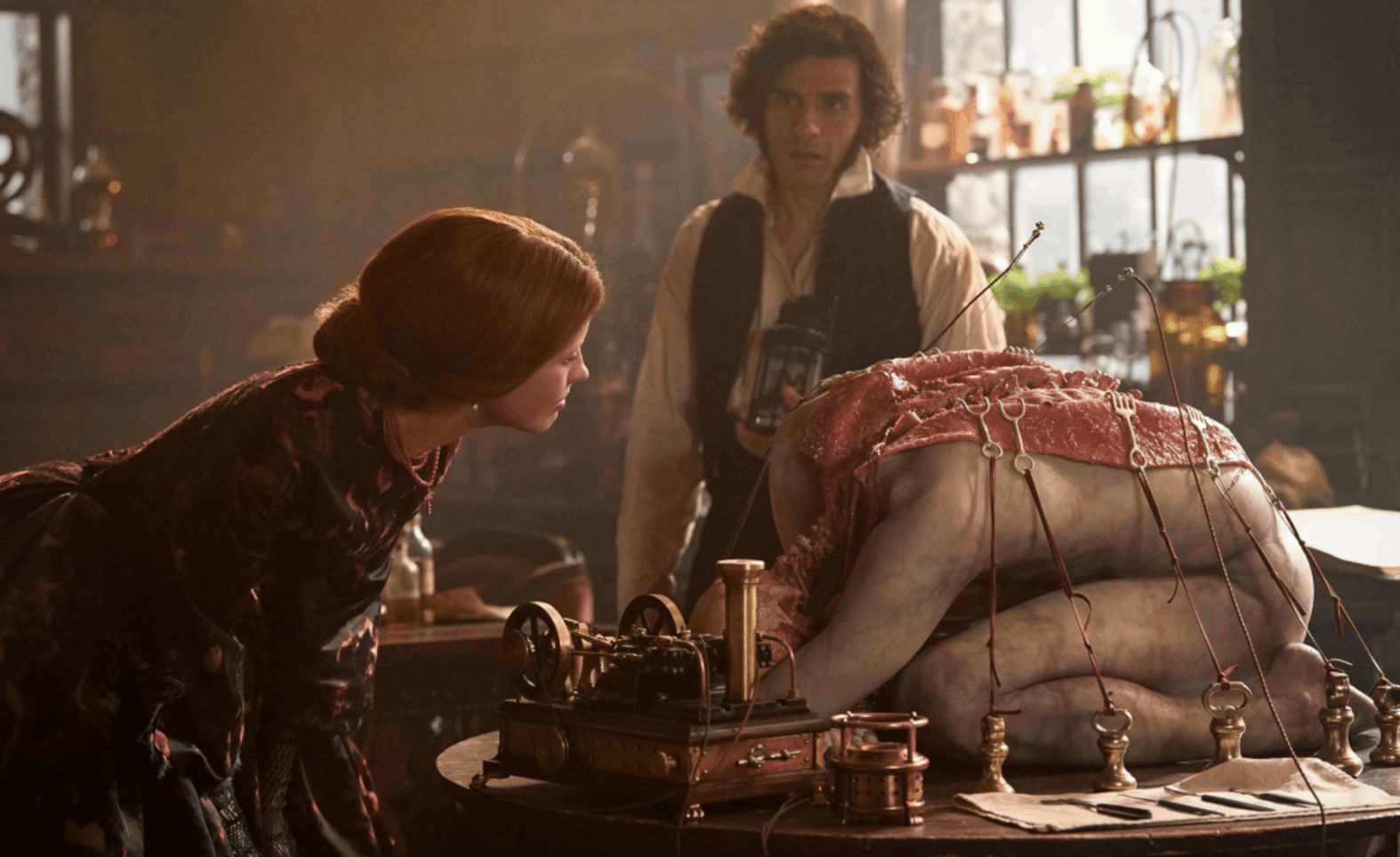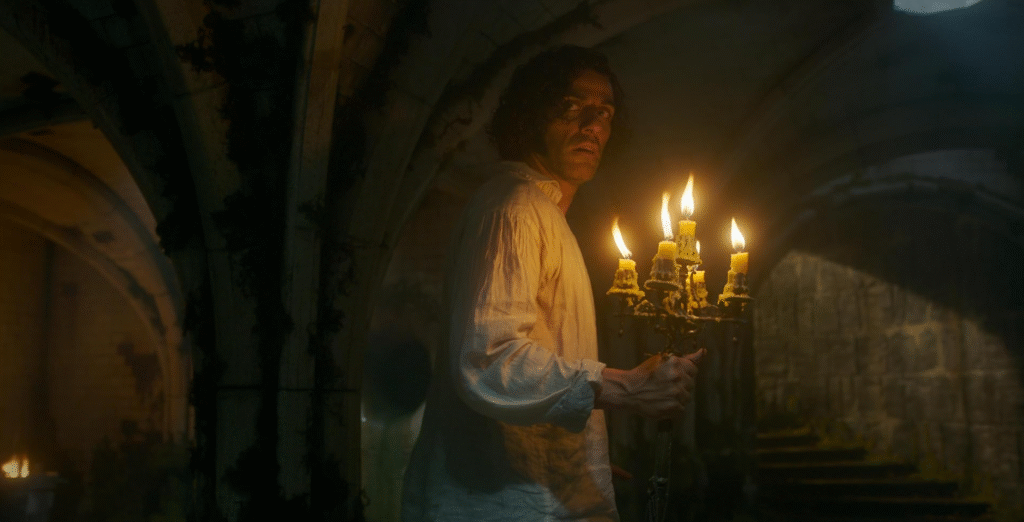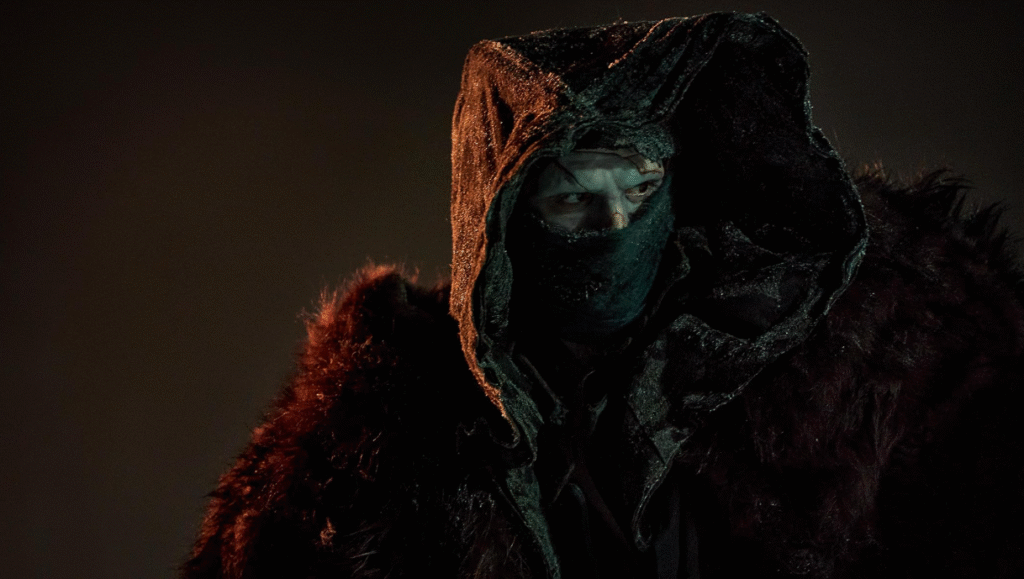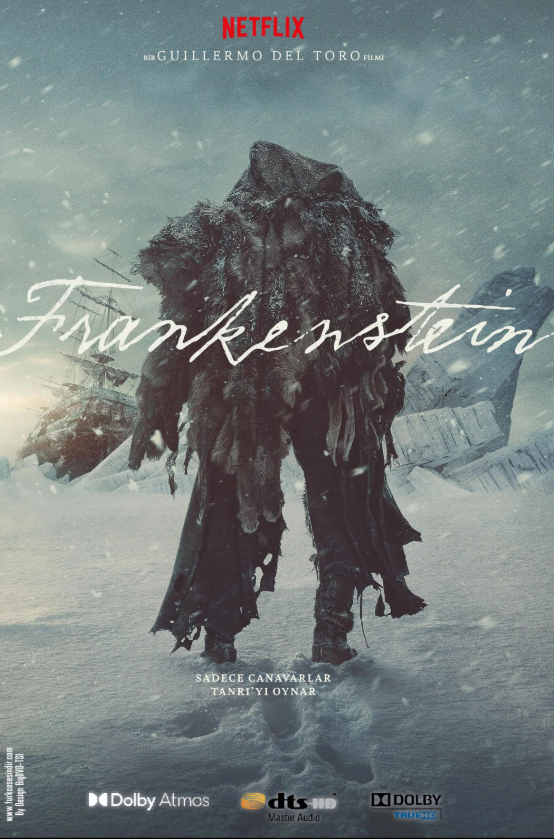Them That’s Not – Finding Silence and Belonging
'Them That’s Not' is one of those films that doesn’t rush ...

Guillermo del Toro’s Frankenstein is a film that wears its ambition on its sleeve, a sprawling epic that seeks not just to retell Mary Shelley’s classic, but to inhabit it with the director’s singular emotional signature. Streaming on Netflix after a brief theatrical release, it is a film that oscillates between breathtaking beauty and narrative excess, yet never loses sight of its true heart: the Creature.
From the very first frames, it is clear that del Toro is at once meticulously faithful and unapologetically inventive. The story is framed aboard a frostbitten ship stranded in the Arctic, where Victor Frankenstein (Oscar Isaac) recounts his tale of obsession and creation to a captivated crew. This narrative nesting mirrors Shelley’s original structure, yet del Toro’s version is richly adorned with Victorian flourishes, plot additions, and new characters. There is a certain chaos to it, like the Crimean War backdrops, a wealthy patron with sinister motives, and Elizabeth (Mia Goth) as a compassionate bridge between man and monster that at times threatens to overwhelm. But it is precisely this messiness that gives the film its human texture, reflecting the messy, uncontainable nature of obsession itself.

Isaac Victor is a man of brilliance and cruelty, driven by ego, haunted by paternal strictures, and utterly enthralled by the godlike power of creation. He is magnetic in his ruthlessness, but the story’s emotional gravity lies elsewhere. That gravity belongs to Jacob Elordi’s Creature. From his birth, a moment of newborn wonder tinged with horror. Elordi’s performance infuses the monster with an aching humanity. He is at once terrifying and heartbreakingly vulnerable, a figure of immense physical presence yet deeply emotional interiority. Del Toro refuses to present him as a simple “monster”; he is the soul of the film, the vessel through which grief, longing, and tenderness flow.
The Creature’s journey is the film’s true revelation. Hidden among humans who reject him, he discovers kindness through Elizabeth and, later, a blind grandfather who teaches him to read and opens his mind to literature, history, and philosophy. These sequences are delicate and lyrical, a quiet counterpoint to the film’s grandiose horror set pieces. They humanise him in ways Shelley only hinted at, emphasising empathy and the painful consequences of abandonment.
Del Toro’s visual storytelling is, unsurprisingly, exquisite. Lavish costumes, intricate sets, and practical effects ground the fantastical in tactile reality. Even the moments of body horror, Victor assembling his creation from battlefield corpses, are shot with a grotesque poetry that shocks without ever losing pathos. Yet the film is not perfect. Some CGI, particularly the wolf attack, falters against the otherwise impeccable design, and the abundance of subplots occasionally weighs down the narrative. Still, these missteps are small against the emotional resonance the film achieves.

At its core, del Toro’s Frankenstein is a meditation on creation, responsibility, and the profound loneliness of being othered. Where Victor embodies ambition unchecked by empathy, the Creature embodies the human longing for love, understanding, and belonging. By the finale, as he walks into the icy dawn, we are left with something rare in a monster story: a deep, lingering sadness paired with the beauty of survival and self-realisation.
In the end, this Frankenstein is not merely a horror film, nor a simple literary adaptation. It is a meditation on the humanity embedded in the grotesque, a story of connection, loss, and the heartache of being seen or not seen by the world. And while del Toro’s personal imprint is indelible, it is precisely his empathy for the Creature that allows the story to breathe, resonate, and ache in the human heart.

Leave A Reply